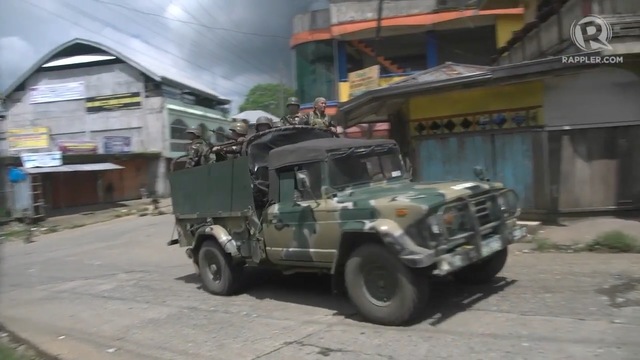The Institute for Policy Analysis of Conflict says the Marawi conflict has long-term repercussions for extremism in Southeast Asia, including greater cooperation among extremists, and more violent attacks

The Marawi conflict has changed the face of terrorism in the region and will have long-term repercussions for extremism in Southeast Asia.
This is one of the findings of the Jakarta-based Institute for Policy Analysis of Conflict (IPAC), in a report released on Friday, July 21, titled “Marawi, the ‘East Asia Wilayah’ and Indonesia.”
The report said that the success of pro-ISIS fighters in occupying an entire Philippine city for an extended amount of time has inspired violence in other places in the region.
It said this could lead to a higher risk of violent attacks in other Philippine cities and in Indonesia and Malaysia; greater cooperation among Southeast Asian extremists; and new leadership for Indonesian and Malaysian pro-ISIS cells from among returning fighters from Marawi.
“The risks won’t end when the military declares victory. Indonesia and Malaysia will face new threats in the form of returning fighters from Mindanao, and the Philippines will have a host of smaller dispersed cells with the capacity for both violence and indoctrination,” said IPAC director Sidney Jones.
The report also said that Southeast Asian ISIS supporters in Turkey, Syria, and Iraq, may see the Philippines as an attractive alternative as ISIS is pushed back in the Middle East.
“The initial photographs from Marawi released over social media as the ISIS assault began – smiling fighters hold guns aloft on trucks – seemed to have the same impact as the iconic ISIS victory photos from Mosul in 2014. They generated a shared sense of triumph and strengthened the desire of ISIS supporters in the region to join the battle,” the report said.
Marawi, said IPAC, has "defied all expectations of when it would end" and "has lifted the prestige of the Philippine fighters in the eyes of ISIS central," although it has not yet earned them the coveted status of wilayah or province of Islamic State.
"It has inspired young extremists from around the region to want to join. In Indonesia, it has helped unite two feuding streams of the pro-ISIS movement, inspired 'lone wolf' attacks and caused soul-searching among would-be terrorists about why they cannot manage to do anything as spectacular."
The attack of terrorists in Marawi prompted Philippine President Rodrigo Duterte to declare martial law in the entire Mindanao region for 60 days since the clashes started on May 23. He has also asked the Philippine Congress to extend the imposition of martial law to 5 more months, or until the end of the year.
Cooperation crucial
IPAC said that given the increased threat, it is crucial for improved cooperation in the region – and that there is no room for distrust, which inhibits information-sharing. It urged for a better integrated watchlist of terrorist suspects as a quick fix that can be implemented immediately.
Another would be a sort of crash course on the terror groups in the region.
“The cross-regional aspects of the Marawi siege underscore the need for Southeast Asia countries to develop more systematic expertise on each other’s extremist networks, so that Philippine police and military know the difference between JAD and JI, Indonesians know the difference between the Abu Sayyaf kidnappers and the Abu Sayyaf pro-ISIS factions and Malaysians know the differences among the various Darul Islam factions, including the ones that extend into Sabah,” the report said.
“It would be worth thinking about a series of short courses, building on real case studies of cross-border extremism, which would involve officials from all 3 countries but in small classes where useful discussions could take place. One concrete outcome to aim for would be an up-to-date and more detailed mapping of transnational extremist networks, with particular attention to the role of women.
It also emphasized the need for the Philippine government to take good care of the Marawi evacuees and to help them rebuild the city, to ensure the area will not be a more fertile ground for extremist recruitment.

No comments:
Post a Comment
Note: Only a member of this blog may post a comment.